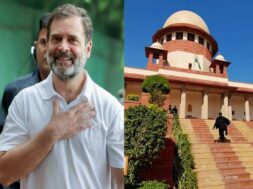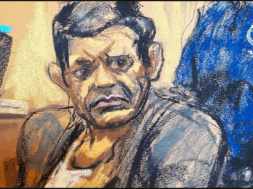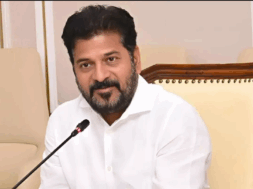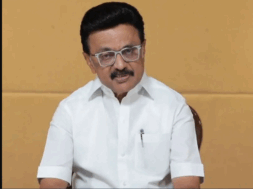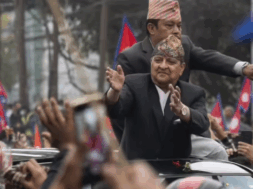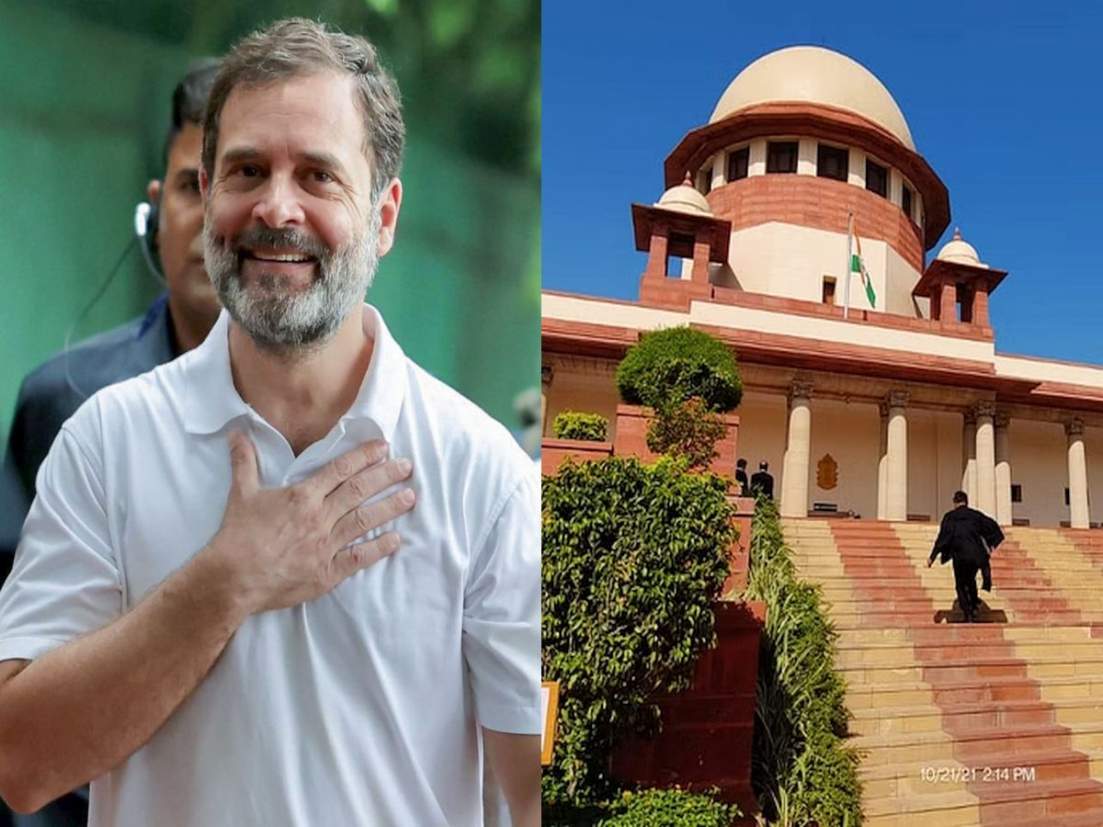
Major Relief to Rahul Gandhi from SC, Conviction Stayed Paving way for Return as MP
Manas Dasgupta
NEW DELHI, Aug 4: Paving the way for the Congress leader Rahul Gandhi’s return as a Member of the Lok Sabha representing Wayanad constituency in Kerala, the Supreme Court on Friday stayed his conviction in the “Modi surname” criminal defamation case he was awarded by a trial court in Surat in Gujarat and upheld by the Surat sessions court and later the Gujarat High Court.
A three-judge Bench headed by Justice B.R. Gavai and comprising Justices P.S. Narasimha and Sanjay Kumar, pointed out that the Gujarat trial judge, other than severely admonishing Gandhi for his alleged remarks, failed to give even a single reason for serving the Congress leader with the maximum sentence of two years’ imprisonment.
The court said the Magistrate had insisted on handing the Congress leader the severest punishment when the penal code allowed a choice between imprisonment and fine or both. The Gujarat High Court too, the Supreme Court Bench said, while waxing eloquent about the various aspects of the case in a “voluminous” 120-page judgment had somehow skipped addressing the issue of complete lack of reasons for giving Mr. Gandhi the maximum punishment.
The Supreme Court verdict would mean that Gandhi’s membership of the Lok Sabha would have to be restored and he would also be able to contest elections which was denied to him by the Surat trial court as two years imprisonment bars a person from contesting any election for eight years.
Gandhi may be able to return to Parliament and participate in the ongoing monsoon session if the Lok Sabha Secretariat restores his membership forthwith. The Congress leaders have already approached the speaker Om Birla for immediate restoration of his membership but he has refused to comment till he received the authenticated copy of the Supreme Court’s orders.
Pointing out that Gandhi was disqualified as MP and barred from contesting elections for eight years under Section 8(3) of the Representation of People Act solely due to the two-year sentence. “Had the duration of the sentence been even a day less, provisions of the Act would not have been attracted… The judge is expected to give reasons for imposing maximum sentence, particularly when the offence is non-cognisable, bailable and compoundable,” Justice Gavai observed.
The Bench noted that “disqualification not only affects the rights of the individual but also that of the electorate he represents in the Parliament… the ramifications are wide.” “Is it not a factor that an entire constituency which elects a person will go unrepresented,” Justice Gavai asked.
Senior advocate A.M. Singhvi and advocate Prasanna S., for Gandhi, said the courts below had condemned the Congress leader to silence for eight years. “There is room for dissent in democracy. There should be mutual respect in politics,” Singhvi said.
The Supreme Court, however, disapproved Gandhi’s remarks for which he was convicted saying that the alleged remarks that “why all thieves have Modi surname?” if made were “not in good taste.” “A person in public life is expected to exercise a degree of caution while making public speeches… The petitioner [Mr. Gandhi] ought to have been more careful,” the court observed.
The court reminded Gandhi of how it had advised him to be more careful in future with his public utterances while accepting his apology for his “chor” remarks during the previous general elections.
During the hearing, Singhvi submitted that he had not seen any other defamation case in which a maximum two-year sentence had been awarded to an accused. He said there had been no reason for the Gujarat High Court to reject Gandhi’s plea to stay the conviction. He said the case did not entail heinous offences such as rape, kidnap or murder, which involves moral turpitude. Singhvi said Gandhi stood convicted of defaming an “amorphous group.”
During the last Parliamentary elections, Gandhi at a rally in Kolar in Karnataka in April, 2019, in a dig at Prime Minister Narendra Modi, referring to the fugitives Nirav Modi and Lalit Modi had said, “How come all the thieves have Modi as the common surname?”
In an affidavit before the top court, Gandhi had said he has always maintained that he is not guilty of the offence and that the “conviction is unsustainable” and if he had to apologise and compound the offence, “he would have done it much earlier.” Gandhi has also challenged the trial court order in the Surat Sessions court, where the appeal is pending, and will continue and the Supreme Court said Friday’s order would not impact the hearing in the sessions court on the main case.
Singhvi argued that there actually was no case as the complainant Purnesh Modi, a BJP member of the Gujarat Assembly and a former minister, original surname was not Modi, and he had changed it. “The complainant Purnesh Modi himself said his original surname was not Modi. He belongs to Modh Vanika Samaj,” he argued, and claimed not a single of the persons Gandhi had named during his speech have sued him. “Interestingly, everybody who is aggrieved in this very ‘small’ community of 13 crores, the only people suing are BJP office-holders. Very strange,” Singhvi said.
The Supreme Court then pointed out that the trial court has also spoken about Gandhi’s criminal antecedents. “They have cited 13 cases but no conviction in any of those cases. How are these cited for criminal antecedents? I am not a hardened criminal…No conviction despite…look at the chart. Full of cases filed by BJP karyakartas, but never any conviction,” Singhvi responded.
Singhvi then pointed out that the High Court treated this as a serious offence involving a moral turpitude. “Not a single material of moral turpitude. Not a single judgement. This is non-cognisable, bailable, and compoundable. Not against society, not kidnapping, rape, murder…maximum sentence of 2 yrs…How can this become an offence involving moral turpitude?” he said. There’s no other defamation case where two years sentence has been given, he added.
Senior advocate Mahesh Jethmalani, for defamation complainant Purnesh Modi, argued that there were official witnesses, tapes and recordings of Gandhi’s comments. He said the electronic evidence showed a “clear intent” to defame an entire community of people with the ‘Modi’ surname because of his hatred for Prime Minister Narendra Modi.
When asked in court, Mr. Gandhi had maintained that he did not remember his remark. “How many politicians remember their speeches? They make at least 10 a day,” Justice Gavai remarked. Gandhi on Wednesday had told the court that attempts to “arm-twist” him into apologising for his remark that “all thieves have Modi surname” was “bizarre.”
Gandhi was replying to Gujarat Purnesh Modi’s affidavit in the apex court. The Gujarat MLA had accused the Congress leader of “arrogance” for refusing to apologise.
“The petitioner is a parliamentarian and an Opposition leader, and therefore it was necessary for him to critically evaluate the conduct and performance of the ruling establishment,” Gandhi’s rejoinder affidavit, filed by advocate Prasanna S, said. Gandhi said it was slanderous to call him arrogant only because he had refused to apologise.
The Congress leader said the criminal process and the consequences of disqualification from the Lok Sabha under the Representation of the People Act were being used to “arm-twist” him. “This is a gross abuse of the judicial process… The petitioner [Mr. Gandhi] has always maintained that he is not guilty of the offence and his conviction is unsustainable. If he had to apologise and compound the offence, he would have done it much earlier,” the Congress leader’s rejoinder affidavit submitted.
It said the complainant Modi had “absurdly trivialised the very idea of moral turpitude” by claiming that the offence of defamation involved moral turpitude. Gandhi said the BJP MLA refers constantly to his “criminal antecedents” without understanding that the term meant a person who is a previous convict.
The Congress leader said the complaints against him were filed by rival political groups and were at a nascent stage. Even cases in which he had not been summoned have been referred by Modi for extraneous reasons.
The rejoinder said the offence of defamation would only apply to an identifiable class of persons. The Gujarat legislator had constantly changed goal posts about whether the Modi surname could be identified to a finite, specific class of people. In fact, Modi had himself submitted that he was from “Modi Samaj” when there was “no Modi Samaj or community”. Then he had said he belonged to the “Modh Vanika” Samaj. This name was common to other communities as well, it noted.
